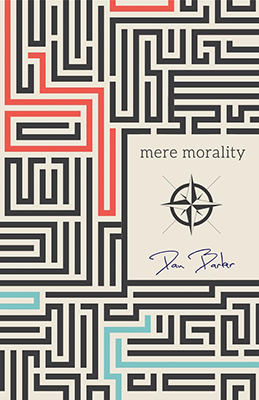Mere Morality
“Mere Morality” by Dan Barker is a book that explores the concept of morality from a secular perspective, challenging the notion that morality requires a religious foundation. Here’s a summary of the key ideas in the book:
Secular Morality: Barker argues that morality does not depend on religion. Instead, he advocates for a secular approach to ethics, grounded in reason, empathy, and human experience.
Ethical Principles: The book discusses various ethical principles that can guide moral decision-making, such as the Golden Rule (treating others as you wish to be treated), principles of justice, and human rights.
Critique of Religious Morality: Barker critiques religious moral frameworks that often include divine command theory (morality defined by God’s commands) and argues that these can be problematic and inconsistent.
Evolution of Morality: He explores how morality has evolved over time, shaped by cultural, societal, and biological factors rather than solely by religious doctrines.
Personal Responsibility: Barker emphasizes personal responsibility and accountability in making moral choices, rejecting the idea that morality requires divine rewards or punishments.
Case Studies: The book likely includes case studies or examples to illustrate how secular moral principles can be applied in various real-life situations.
Conclusion: Barker concludes by asserting that a secular approach to morality is not only possible but preferable, as it promotes autonomy, rationality, and compassion without the need for religious dogma.
Overall, “Mere Morality” seeks to establish a framework for ethical living without recourse to religious authority, encouraging readers to think critically about moral issues and make informed decisions based on humanistic values.

